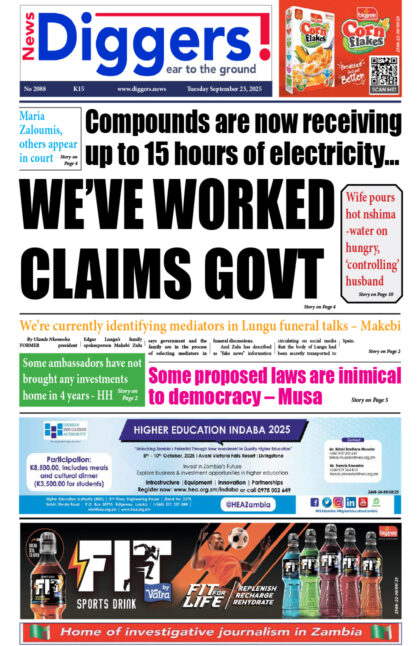Lawyers for Vedanta Resources told England’s Supreme Court, Tuesday, that a case raised against the mining company by nearly 2,000 Zambian villagers should be heard in Zambia, not London.
India-listed Vedanta, which delisted from London last year but maintains a legal base in Britain, is appealing a lower court ruling that a case in which villagers alleged their land was polluted by a Vedanta unit could be heard in England.
The two-day hearing will be watched by other multinational companies with a base in London and facing legal challenges about their operations abroad from local residents.
England’s highest court is not expected to deliver a judgment for several weeks, court officials said.
Vedanta’s legal team argued that Zambia was the natural forum for the case and said the parent company did not control operations in Zambia, which were governed by Zambian law.
In 2017, London’s Court of Appeal had found that 1,826 Zambian citizens living on the Copperbelt had the right to sue Vedanta in the English courts.
Vedanta is challenging this.
The villagers allege their land and livelihood have been destroyed by water pollution caused by the Nchanga Copper Mine, owned by Vedanta through its subsidiary Konkola Copper Mines.
London law firm Leigh Day has argued that the English courts were the only route for the villagers to achieve justice.
Vedanta’s barrister Charles Gibson QC told the court today that the farmers’ case was “deeply tiresome” and their “allegations have absolutely no substance.”
Mr Gibson said that Vedanta only agreed to provide KCM advisory services as an independent contractor and that its management agreement showed Vedanta did not have capacity to control KCM.
Before the two-day hearing, Zambian campaigners George Mumbi and Esson Simbeye said their community has “suffered severe pollution of water sources ever since Vedanta took over the mines,” leaving the land “poisoned” and local people “very sick.”
“People used to think British mining companies were better, but Vedanta are one of the worst foreign investors in Zambia,” they said. “It is time that justice came home to roost in Britain.”
Vedanta’s case will also likely be watched by miner BHP, which has said it will fight an English suit by Brazilians seeking damages over an environmental disaster caused when the Fundao dam that stored mining waste burst in 2015.
Outside the court, action group Foil Vedanta was among those protesting against what they allege is pollution by Vedanta.
“While the financial and material gains from copper have been allowed to flow seamlessly out of the country, justice risks being restricted by economic and institutional barriers of territoriality,” Foil Vedanta campaigner Samarendra Das said in an emailed statement.
She said the company’s “remorseless pollution of the River Kafue since 2005 continues the colonial legacy of environmental racism which made the Copperbelt a global pollution hotspot.”
The villagers’ solicitor, Oliver Holland of Leigh Day, said: “Our clients continue to suffer from the effects of the pollution both on their health and their livelihoods.” He said Vedanta’s appeals had caused years of delay.
British Green Party MP Caroline Lucas expressed solidarity with the Zambian claimants. She lambasted “Vedanta’s irresponsible pursuit of profit,” saying: “When British corporations like Vedanta cause toxic pollution overseas, it’s absolutely right that they pay for the damage.”
The case continues and A verdict is expected in April.
























